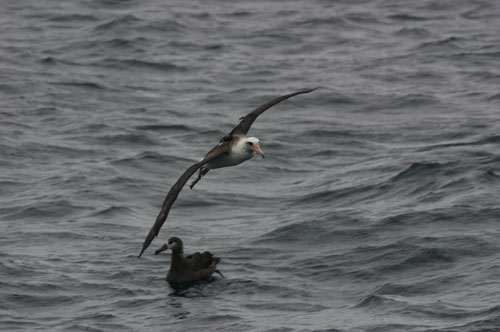Kim Rivera (NOAA National Seabird Program, Juneau, Alaska, USA) and colleagues have recently co-authored a report of a workshop held in 2009 in Seattle, Washington, USA to produce a national plan to improve the state of knowledge and reduce commercial fisheries impacts on seabirds.
The primary goal of this workshop was to initiate the development of a National Seabird Implementation Plan. Four themes were discussed in break-out groups:
Pelagic seabird abundance and distribution and overlap with fisheries;
Anthropogenic impacts (e.g. bycatch/entanglement/habitat alteration) and mitigation;
Management and coordination within and between agencies and with stakeholders on shared objectives; and
Ecosystem approach to management—seabirds as indicators of marine health (i.e. sentinel species).
Themes emerging from the workshop include continuing to work on seabird bycatch issues, improving connections, networks and educational outreach, and using seabirds as indicators to improve management.

Black-footed and Laysan Albatrosses at sea: at risk to fisheries
With thanks to Kim Rivera for information.
Reference:
Rivera K.S., LT. Ballance, L.T., Benaka, L., Breuer, E.R., Brooke, S.G., Fitzgerald, S.N., Hoffman, P.L., LeBoeuf, N. & Waring, G.T. 2014. Report of the National Marine Fisheries Service’s National Seabird Workshop: Building a National Plan to Improve the State of Knowledge and Reduce Commercial Fisheries Impacts on Seabirds. September 9–11, 2009, Alaska Fisheries Science Center, Seattle, WA. NOAA Technical Memorandum NMFS-F/SPO-139. 78 pp.
John Cooper, ACAP Information Officer, 01 April 2014

 English
English  Français
Français  Español
Español